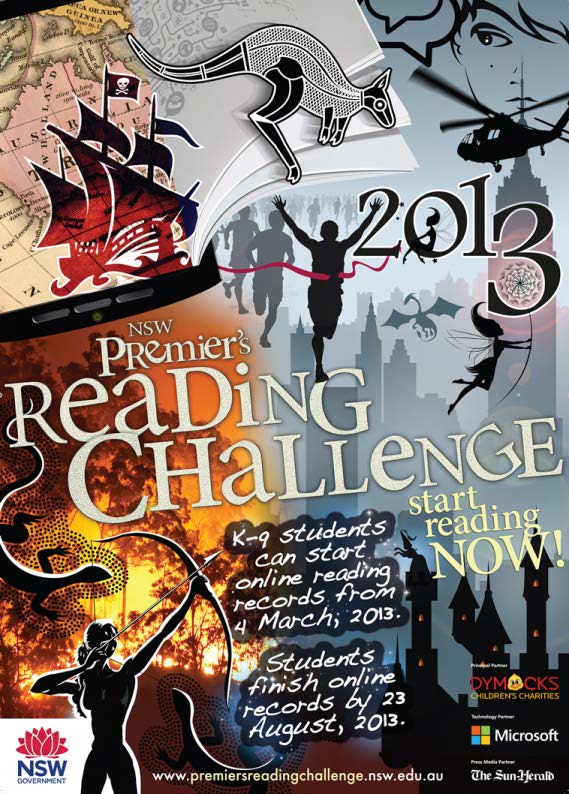 I have always felt that to do something right you need to concentrate your effort, put your head down and power on. So the thought of taking on KOALA and the PRC always seemed like too much to consider. (I did download all the PRC docs one January in recent years only to leave them untouched – forgotten in the effort to get kids nominating for KOALA.)
I have always felt that to do something right you need to concentrate your effort, put your head down and power on. So the thought of taking on KOALA and the PRC always seemed like too much to consider. (I did download all the PRC docs one January in recent years only to leave them untouched – forgotten in the effort to get kids nominating for KOALA.)
Just recently I changed my mind on this in an epiphany moment. A Year 7 boy came to us at the library desperately asking how he could register for the PRC for 2013. He had completed the challenge for seven years in a row at his primary school. So I took the challenge and joined PRC to help him out. Quickly checking the rules I was reminded of the fact that although the PRC runs from 1st March to 1st September each year, participants can start reading in September for the following year’s challenge. Light bulb moment: PRC lists over 7,000 titles; a high proportion of the PRC books are Australian (I’m working on the figures for that); most of the KOALA 2013 shortlisted books are on the PRC lists [here is the KOALA shortlist matched to PRC] ; each year new books are added; and September through to February represent a pretty good window of opportunity for kids to get reading.
So in February they might have some good ideas for KOALA nominations, and in March they can start to record online their reading for PRC. (We also have a DEAR database where our students are encouraged to record their reading.)
The other aspect I had been missing is that when our new Year 7s arrive each year we are completely blind to what they have been reading in primary school. With 230,000 students completing PRC in 2012 we are bound to have a number of these in our intake. What a great opportunity to pick up the ball and encourage that habit of reading at a time when many kids slow down in their reading practice.
The issues and opportunities around using KOALA and PRC to develop young readers, and to highlight Australian literature, will vary from school to school and between levels of schooling. But there is certainly an opportunity or two worth considering.
We would love to hear comments from schools and public libraries who are managing both schemes, or your thoughts and experiences on the opportunities and pitfalls.
The NSW Premier's Reading Challenge
By Marita Thomson, Teacher Librarian, The King’s School, Parramatta.
